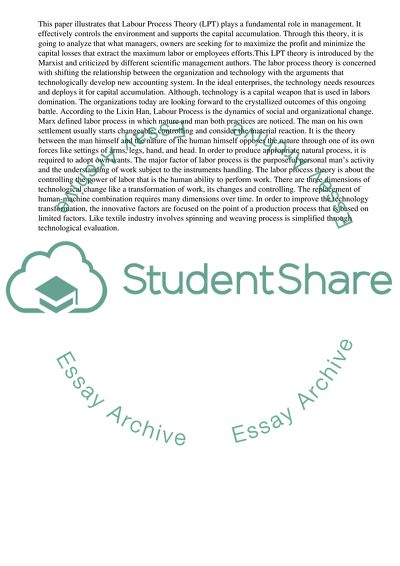Cite this document
(“Strengths and Weaknesses of Labour Process Theory Essay - 1”, n.d.)
Strengths and Weaknesses of Labour Process Theory Essay - 1. Retrieved from https://studentshare.org/management/1645642-critically-evaluate-the-strengths-and-weaknesses-of-labour-process-theory-for-our-understanding-of-the-impact-of-information-and-communication-technologies-in-the-workplace
Strengths and Weaknesses of Labour Process Theory Essay - 1. Retrieved from https://studentshare.org/management/1645642-critically-evaluate-the-strengths-and-weaknesses-of-labour-process-theory-for-our-understanding-of-the-impact-of-information-and-communication-technologies-in-the-workplace
(Strengths and Weaknesses of Labour Process Theory Essay - 1)
Strengths and Weaknesses of Labour Process Theory Essay - 1. https://studentshare.org/management/1645642-critically-evaluate-the-strengths-and-weaknesses-of-labour-process-theory-for-our-understanding-of-the-impact-of-information-and-communication-technologies-in-the-workplace.
Strengths and Weaknesses of Labour Process Theory Essay - 1. https://studentshare.org/management/1645642-critically-evaluate-the-strengths-and-weaknesses-of-labour-process-theory-for-our-understanding-of-the-impact-of-information-and-communication-technologies-in-the-workplace.
“Strengths and Weaknesses of Labour Process Theory Essay - 1”, n.d. https://studentshare.org/management/1645642-critically-evaluate-the-strengths-and-weaknesses-of-labour-process-theory-for-our-understanding-of-the-impact-of-information-and-communication-technologies-in-the-workplace.


